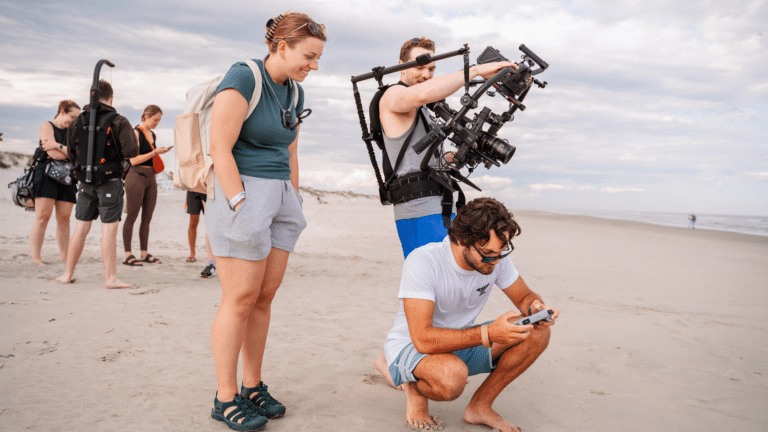Hotel SEO combines on-site and off-site optimizations that help potential guests find your brand on search engines.
Google and other search engines use crawlers that read through your website and use signals to determine how well that site will fulfill a searcher’s query. Hotel and travel SEO optimizes your website for users and crawlers to maximize organic exposure.
Forge Apollo is an SEO marketing company in Philadelphia that offers a full suite of digital and video marketing services. As one of our in-house SEO experts, I’m walking you through the basics of hotel SEO in this article.
Why is Hotel SEO So Important?
Statista predicts that by 2029, 75% of the tourism market’s total revenue will come from online sales. Whether they’re ready to book or researching general travel ideas, your target audience is online and searching. Without an optimized online presence, your brand lacks visibility in search results, resulting in potential bookings and customers.
How to Create a Hotel SEO Strategy in 9 Steps
Modern SEO is about creating helpful content that provides value to your audience while tailoring your online presence to help them find it.
1. Create Buyer Personas
The first step to reaching your audience is to understand who they are. Look at your data, talk to your team, and interview your customers to develop buyer personas.
A buyer persona is a fictitious representation of your ideal customer, informed by data about your actual customers. It includes demographic data, like age and location, and behavioral data, like preferred media.
Your buyer personas should be the lens through which you do everything else in this guide.

2. Do Keyword Research
Keywords are the words or phrases that users type into a search engine to view results. They can be single words or phrases like “hotel” or “Philadelphia hotel.” They can also include longer phrases, like “places to stay in Philadelphia” (also known as long-tail keywords).
Start by listing words and phrases related to your hotel and services. Then, you can use tools like Ubersuggest, AnswerThePublic, or SEMRush’s Keyword Magic Tool to find additional related keywords or concepts.
Tools like SEMRush, Ahrefs, or Moz can provide insight into a keyword’s number of searches, ranking difficulty, and searcher intent. SEMRush is my favorite tool for keyword research because it offers more data and a more comprehensive feature list than the other two.
It’s also a good idea to type each of your keywords into Google and check out what the results page looks like. What features appear on the page? What sites are currently ranking for each term?
Keep difficulty in mind when compiling your final list of keywords. Smaller brands may have a harder time competing against larger brands for certain terms, so long-tail, lower-difficulty keywords are a better choice for small brands.
3. Outline Your Content Structure
A clear website structure helps visitors find what they are looking for and helps search engines understand your content.
Outline all of the information you need to include on your website. Then, identify your highest-level pages (what you would put in the navigation) and decide how content slots fit under that.
For example, if you have multiple hotels, you might have a high-level page listing all the hotels and then a page for each hotel, with pages beneath those containing specific information about the hotel. It would look something like this:
- Hotels
- Hotel Location 1
- Rooms
- Amenities
- Specials
- Hotel Location 2
- Rooms
- Amenities
- Specials
- Hotel Location 1
4. Optimize Your Website Design
Back-End Structure
Optimize your website’s back-end structure for user and search engine performance. Your choice of website host, content management system, and site-building methods affect its performance.
Consider the following factors in your build:
- Fast loading speeds
- Mobile-friendliness
- Accessibility
- Structured data
Front-End Design
Ensure that your website design is user-friendly. Users should be able to easily find the information they need. They should also always be clear on what next step you expect of them and how to take that step.
5. Optimize On-Page Elements
Each page has several elements to optimize for both users and search crawlers. Use your target keywords naturally throughout these elements.
-
- Meta titles and meta descriptions – These can appear in search results as a blue link and the text beneath it. They should hook users and accurately reflect the information on your page.
- Headings – These should appear throughout your page to make it easier to read. Start with an H1 heading at the top of your page and work in hierarchical order from there.
- ALT text – Include ALT text on your images so screen readers and page crawlers can understand the content on your page.
- URL structure – The URL for your page should be short, easy to understand, and an accurate representation of what is on the page.
- Internal links – Help users and crawlers discover pages on your website by linking to other website pages from relevant anchor text.
6. Content Marketing
Fill your website or start a blog with fresh, valuable content that connects with your audience at every stage of their travel journey. Spend time listening to your audience to understand the topics they may be interested in. Then, bring your unique perspective to creating content about those topics.
7. Off-Site SEO
Earning and maintaining a presence on websites outside of your own helps show search engines that you are legitimate and trustworthy. Set up a presence for yourself on social media platforms, local listings, and other relevant platforms. You can also create content worthy of earning backlinks, which are links to your website from another website.

8. The Importance of Local SEO
Local SEO, or optimizing your website to appear in search results relevant to your location, is vital for hotels. Here are some tactics for local SEO for hotels:
- Create a landing page for every hotel location.
- Set up & maintain a presence on local listings with consistent Name, Address, and Phone Number (NAP) information for each hotel location.
- Utilize local keywords (like “hotels in Philadelphia”) throughout your content.
- Build relationships with local publications and influencers to earn mention from them.
Google Business Profile
Google Business Profile is arguably the most important local listing to maintain, as this is where Google Maps pulls information from. There are a wealth of features specifically for hotels, such as:
- Amenities
- Class rating
- Prices and booking links
- Businesses inside a hotel
9. Track Performance
Tracking your performance is the only way to tell if what you’re doing is successful. Identify which metrics are important for your goals, then monitor them on tools like Google Analytics, SEMRush, and Google Search Console. Some metrics you might evaluate include:
- Organic traffic (sessions & views) (In Google Analytics)
- Conversions from organic traffic (In Google Analytics)
- Engagement rate & bounce rate (In Google Analytics)
- Organic impressions & clicks (In Google Search Console)
- Average ranking position (in Google Search Console and for specific keywords in SEMRush or other SEO tools)
- Backlinks or brand mentions (some info in Google Search Console, more in SEMRush or other SEO tools)
- Reviews (On Google Business Profile and other local listings)
Sign up for Winning Hotel SEO Services
Crafting a winning hotel SEO strategy is all about knowing your brand, your audience, and how search engines work. If you’re feeling overwhemled by the idea of crafting your own strategy, Forge Apollo provides hotel SEO services. We offer SEO marketing in Philadelphia and other areas. We can help you evaluate your audience, set goals, and formulate a travel SEO strategy to meet them. Contact us today to explore what you can achieve with hotel SEO.







